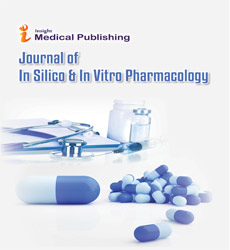Abstract
Hydrogen technology for automobiles in the 21st century towards more secure and cleaner environment
Hydrogen is expected to play an important role in future energy scenarios, as it could resolve growing concerns about world’s energy supply, security, air pollution, and greenhouse gas (GHG) emissions. Hydrogen production from renewable resources can potentially reduce the CO2 emissions. Hydrogen is a non-toxic, clean energy carrier that has high specific energy on a mass basis (e.g., the energy content of 9.5 kg of hydrogen is equivalent to that of 25 kg of gasoline). Worldwide H2 production is ~ 500 billion.m3 annually with ~6.5 EJ (1EJ=109 GJ) of energy. The exhaust from the H2 vehicles is water. Early developments (from 1960) were focused on H2 -IC engine vehicles. In 2001, BMW introduced H2 -IC engine vehicles. Significant advancements in fuel cell technologies and initiatives offered by the US DOE, world-wide governmental agencies, and industries led to the development of prototypes H2 -fuel cell electric automobiles. In the last 10-15 years many auto manufacturers, including Toyota, Honda, Hyundai, Ford, General Motors, Daimler Chrysler and others have developed fuel cell vehicles, some are already becoming commercial. Many countries are installing hydrogen fueling stations but they are relatively few clustered around big, highly populated cities. Low pressure, solid state metal hydrides, such as LaNi4.8Sn0.2, have already been developed for space applications, but they are very heavy and have low gravimetric hydrogen density of ~2 wt.% for vehicular applications. Light weight and low pressure (LP) complex hydrides, such as Mg(BH4 )2 , Li2 NH-LiNH2 and other light weight systems with ~10 to 18 wt.% H capacity are still in developmental stages. Non withstanding the LP solid state systems, Toyota and other manufacturers started using high pressure (~700 bar) H2 , carbon fiber composite, cylinders which appear to be functional in the latest vehicles under normal operations. The H2 based vehicular technological developments, and challenges associated with this technology will be presented.
Author(s): Dhanesh Chandra
Abstract | Full-Text | PDF
Share this

Google scholar citation report
Citations : 203
Journal of In Silico & In Vitro Pharmacology received 203 citations as per google scholar report
Journal of In Silico & In Vitro Pharmacology peer review process verified at publons
Abstracted/Indexed in
- Google Scholar
- China National Knowledge Infrastructure (CNKI)
- WorldCat
- Publons
- International Committee of Medical Journal Editors (ICMJE)
- Secret Search Engine Labs
Open Access Journals
- Aquaculture & Veterinary Science
- Chemistry & Chemical Sciences
- Clinical Sciences
- Engineering
- General Science
- Genetics & Molecular Biology
- Health Care & Nursing
- Immunology & Microbiology
- Materials Science
- Mathematics & Physics
- Medical Sciences
- Neurology & Psychiatry
- Oncology & Cancer Science
- Pharmaceutical Sciences

